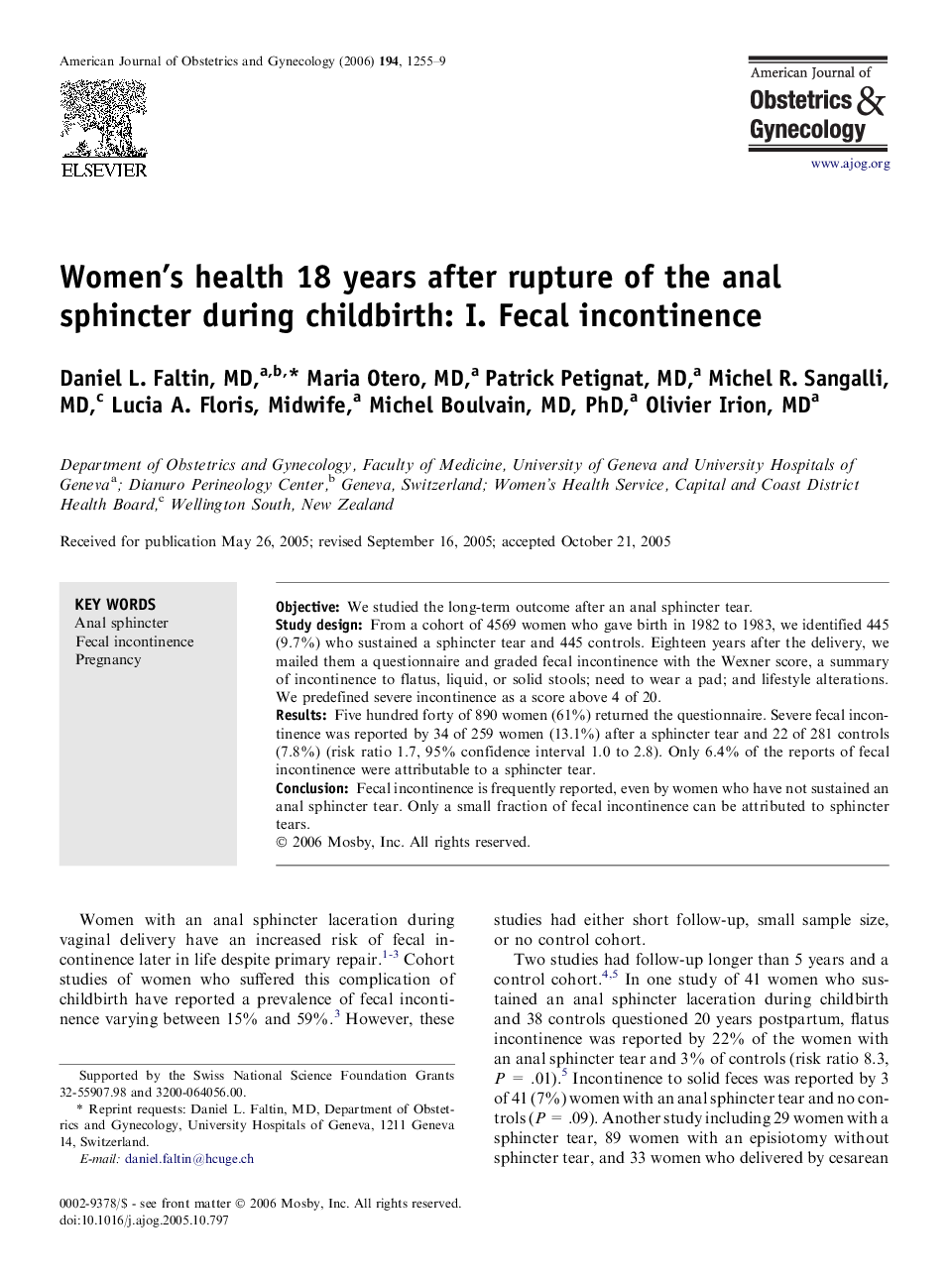| Article ID | Journal | Published Year | Pages | File Type |
|---|---|---|---|---|
| 3442702 | American Journal of Obstetrics and Gynecology | 2006 | 5 Pages |
ObjectiveWe studied the long-term outcome after an anal sphincter tear.Study designFrom a cohort of 4569 women who gave birth in 1982 to 1983, we identified 445 (9.7%) who sustained a sphincter tear and 445 controls. Eighteen years after the delivery, we mailed them a questionnaire and graded fecal incontinence with the Wexner score, a summary of incontinence to flatus, liquid, or solid stools; need to wear a pad; and lifestyle alterations. We predefined severe incontinence as a score above 4 of 20.ResultsFive hundred forty of 890 women (61%) returned the questionnaire. Severe fecal incontinence was reported by 34 of 259 women (13.1%) after a sphincter tear and 22 of 281 controls (7.8%) (risk ratio 1.7, 95% confidence interval 1.0 to 2.8). Only 6.4% of the reports of fecal incontinence were attributable to a sphincter tear.ConclusionFecal incontinence is frequently reported, even by women who have not sustained an anal sphincter tear. Only a small fraction of fecal incontinence can be attributed to sphincter tears.
